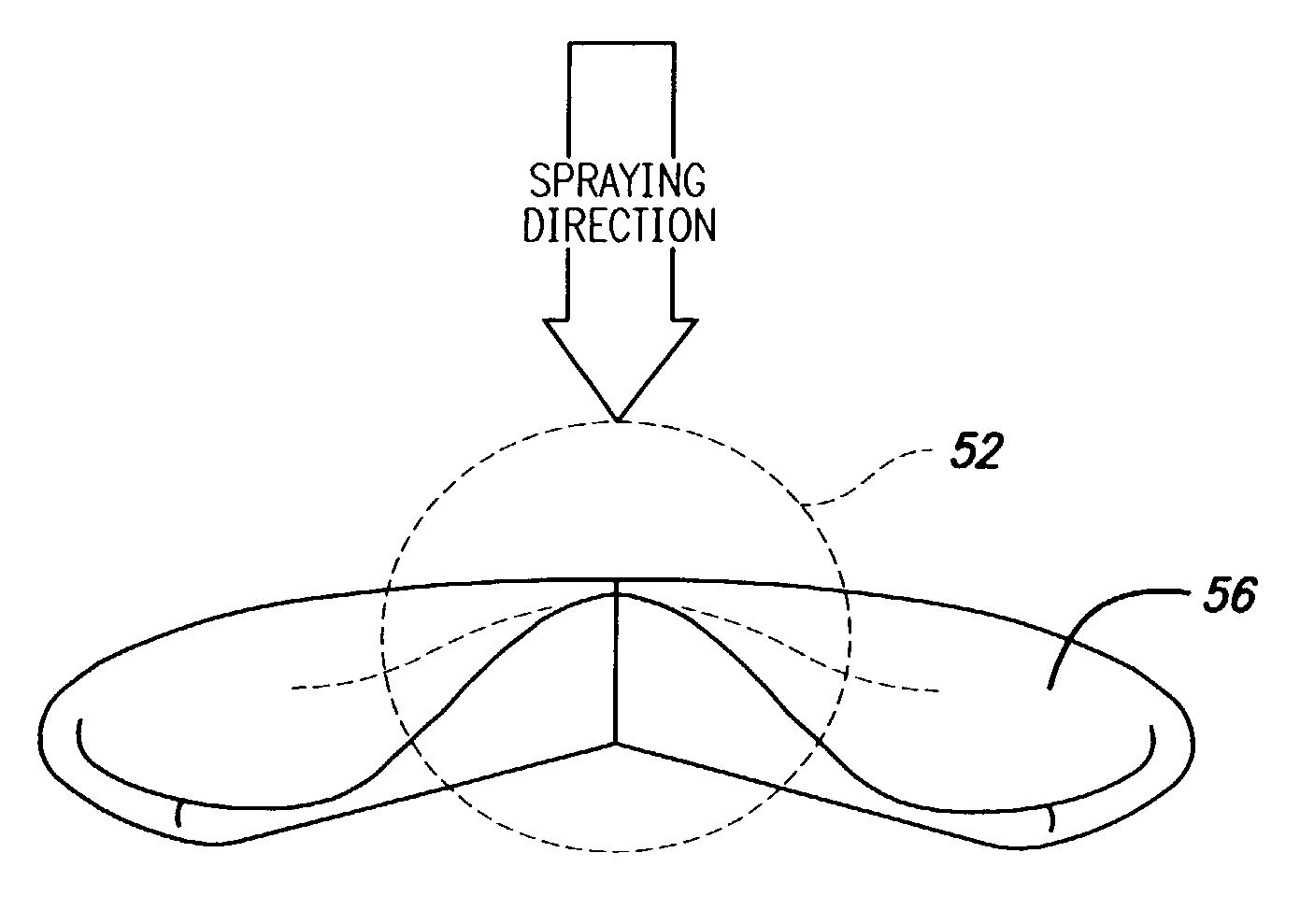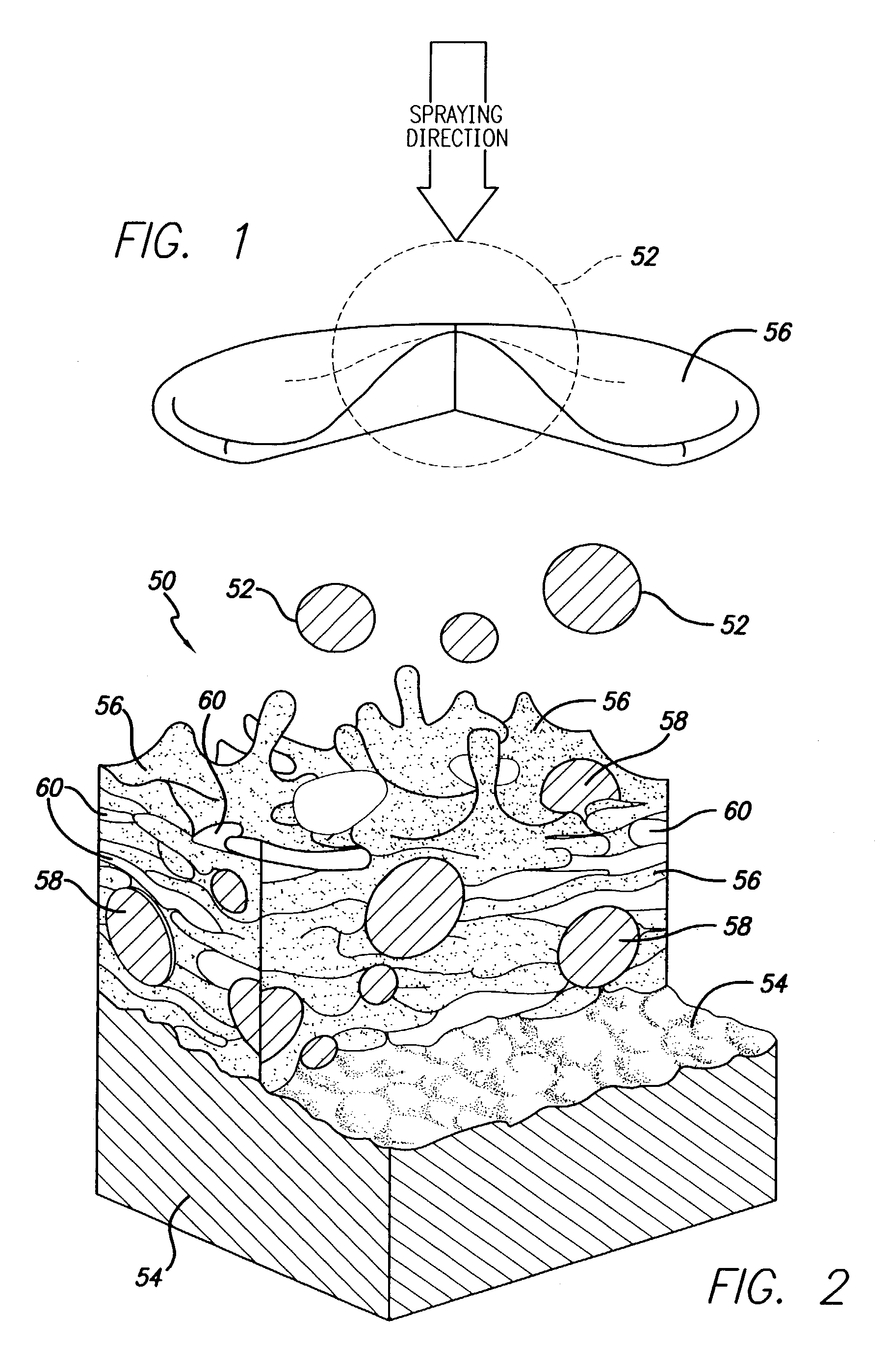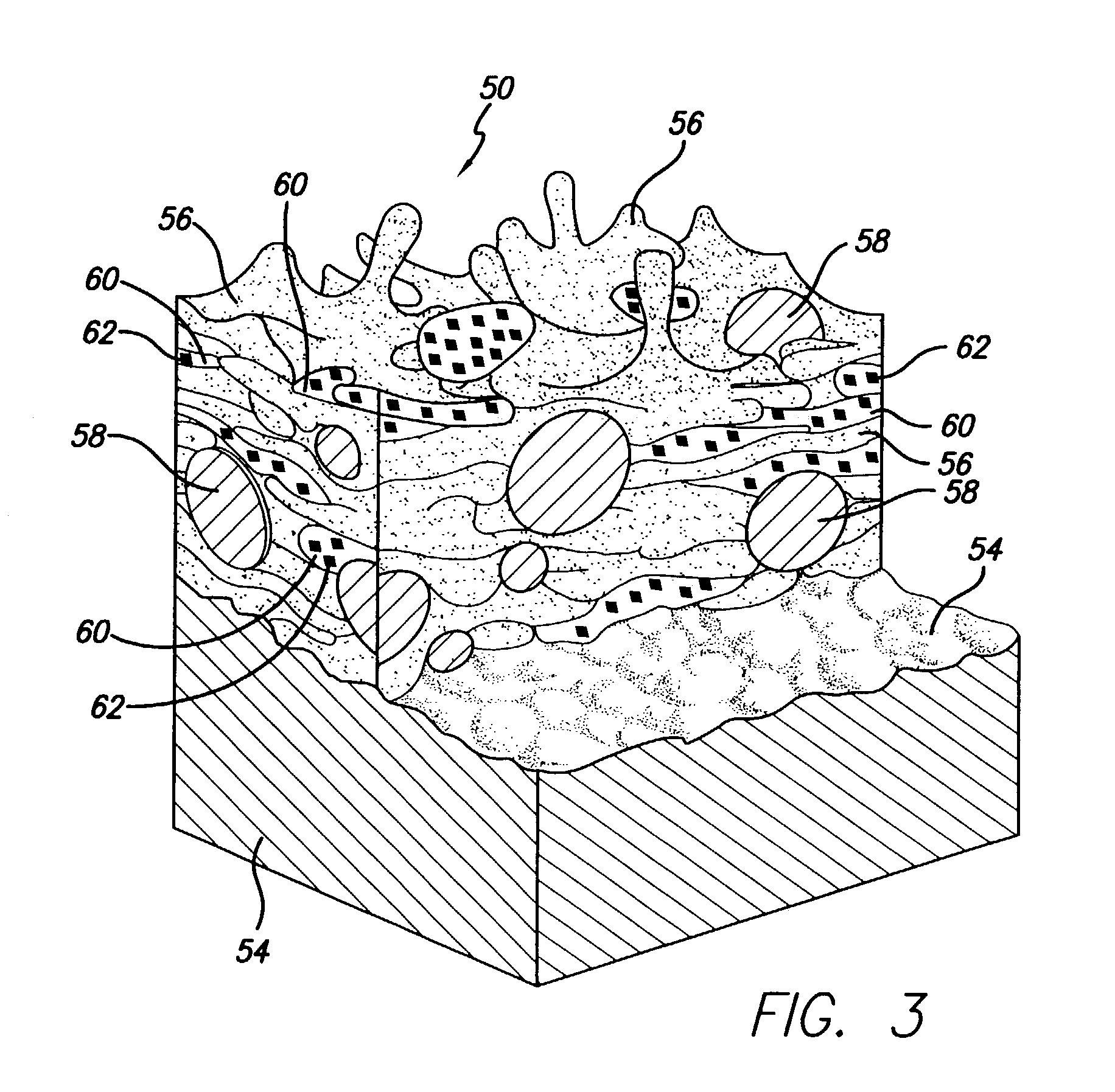Spray processing of porous medical devices
- Summary
- Abstract
- Description
- Claims
- Application Information
AI Technical Summary
Benefits of technology
Problems solved by technology
Method used
Image
Examples
Embodiment Construction
[0036]The present invention relates to use of various spray processes for forming porous starting materials and porous near net-shaped medical devices, and to provide a porous coating on starting materials or near net-shaped medical devices. In accordance with the present invention, thermal spraying and / or cold spraying may be used to partially or wholly form starting materials, such as, but not limited to, tube stock, substrate sheets and wire, which can be further processed into a net-shaped (finished) medical devices. Similarly, thermal spraying and / or cold spraying may be used to coat starting materials or to coat near-net-shaped medical devices, such as, but not limited to, stents, anastomosis clips, embolic protection filters, graft attachment systems, markers, guide wires, mitral valve repair devices and defibrillator lead tips. As part of the spray process or as a separate aspect of the method of manufacture of the medical device, a therapeutic agent or drug may be applied t...
PUM
 Login to View More
Login to View More Abstract
Description
Claims
Application Information
 Login to View More
Login to View More - R&D
- Intellectual Property
- Life Sciences
- Materials
- Tech Scout
- Unparalleled Data Quality
- Higher Quality Content
- 60% Fewer Hallucinations
Browse by: Latest US Patents, China's latest patents, Technical Efficacy Thesaurus, Application Domain, Technology Topic, Popular Technical Reports.
© 2025 PatSnap. All rights reserved.Legal|Privacy policy|Modern Slavery Act Transparency Statement|Sitemap|About US| Contact US: help@patsnap.com



